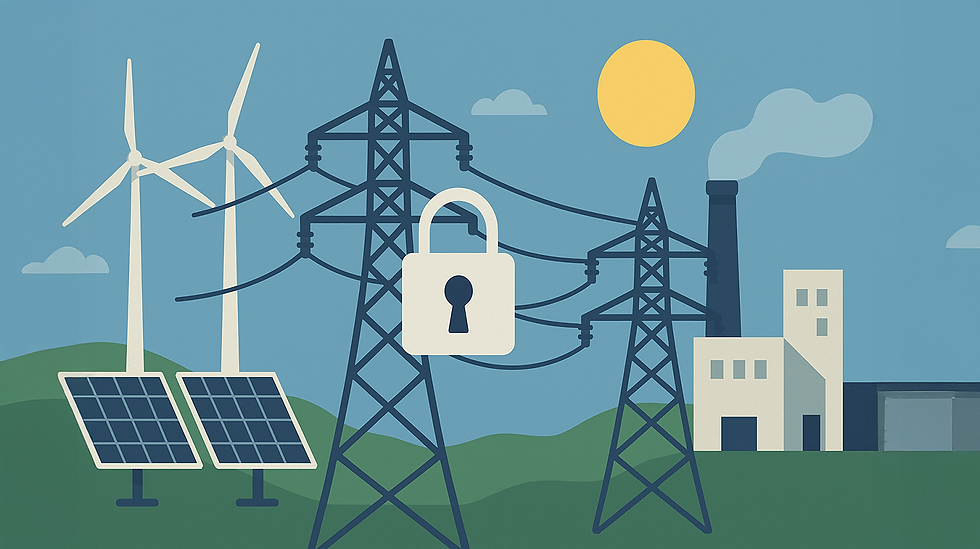Mediterranean: the most polluted sea in the world?
- Ye Jeong Kim
- Jul 31, 2022
- 4 min read

The Mediterranean is an almost completely enclosed closed sea and is very busy, especially in summer. Although it seems like paradise on earth with its idyllic scenery, it concentrates 250 billion microplastic particles that are invisible to the naked eye. Today, the Mediterranean Sea is the most polluted sea in the world, because it has four times more concentrations of microplastics per square kilometer than the 7th continent (also known as the Great Pacific Garbage Patch). This observation is more than alarming and should encourage us all to act in order to conserve these places of paradise. The life and activity of the seaside territories depend on a healthy Mediterranean Sea.
Main Sources of Pollution
One of them is the microplastics generated by tires, clothes made of synthetic materials or recycled plastic (which release microplastics when washed but also when worn), and cosmetic products (especially sunscreens). Tourism is also a major source of pollution. This year, the summer season promises to be record-breaking after two years of tourism being halted by Covid. Many of us will enjoy the beaches of the Mediterranean, so plastic pollution is likely to reach records as well because tourist presence on the Mediterranean coasts results in a very significant increase in marine pollution, ranging from +40% to +200% according to studies.
The Mediterranean is one of the richest ecosystems on the planet, yet it is also one of the most threatened at present. It represents less than 1% of the ocean surface but concentrates 10% of the biodiversity. Its entire ecosystem is now in danger because of plastic pollution. It is estimated that 80% of plastic waste in the Mediterranean Sea originates from land. 85% of the waste found on beaches is plastic waste. Among the most widespread on the coast, there are cigarette butts that tourists tend to bury in the sand. They contain plastic in the filter, and just one cigarette butt can pollute up to 500 L of water! Then come plastic bottles and their caps, plastic bags, food packaging (snacks, ice cream), lollipop sticks, and disposable plates and cutlery. All of this waste clearly comes from our consumption and could be avoided. We just need to create new habits to avoid using plastic during our vacations.
Solutions
We must consider nature as our heritage, as a legacy that we leave to humanity that is of universal interest. It is a bit like in a love story, we should not take anything for granted but continue every day to show the person we love how unique they are to us. The Mediterranean Sea needs us more than ever. We all need to make our loved ones aware of the issues and threats facing the Mediterranean now if we want to protect it, preserve it, and continue to spend our best vacations there. Still, too few people truly take this issue seriously. If we do not take care of this paradise then much faster than we think, in just 5 years, we will no longer be able to swim there without endangering our health. The Corsicans have understood this. They have decided that, in order to combat tourist overcrowding on the island, they will set up quotas to limit the visitors with an application as of the month of July. We can only welcome this type of initiative. Another way to protect it is to prevent plastic from reaching it, and to achieve this we must drastically reduce our plastic consumption. We must treat this problem at the source. Let's continue to participate in the Plastic Free July challenge, which consists of replacing our plastic products with alternatives, especially in summer, when we spend time by the sea, and leaving nothing behind on the beach but memories. It is important to remember that the masses of plastic present in the sea and the ocean contributes to global warming because this plastic waste releases greenhouse gases when it comes into contact with the sun's rays. Knowing that we are facing an unprecedented heat wave this summer, imagine what this plastic waste can release as greenhouse gases. Urgent action is required.
Collective Initiatives in Action
In early July, the United Nations Oceans Conference in Lisbon resulted in a red alert for humanity being launched. The Lisbon Declaration, "Our Ocean, our future, our responsibility", implores governments to do more to prevent, reduce, and eliminate plastic waste in the sea including single-use plastics and microplastics. As a result, leaders from more than 130 countries adopted a landmark joint declaration committing to urgent action in order to achieve carbon neutrality by 2040, reduce plastic pollution, increase the use of renewable energy and allocate billions of dollars to ocean acidification research, climate resilience projects and monitoring, control and surveillance. The statement also welcomed the decision taken at the Fifth UN Environment Assembly in Nairobi, Kenya in March which established an intergovernmental negotiating committee to develop a legally binding agreement on plastic pollution. Member states gave a historic resolution to forge the agreement by 2024.
This is a huge step forward. It is really time to feel the awakening of governments and industries on this issue of plastic pollution which has become a matter of public health. We still hear the solution of plastic recycling as an ultimate goal too often. Reaching 100% of recyclable and reusable plastic by 2030 is a myth. We must collectively stop the progression of this solution, which is not a solution, both in the short and the long term. Many collective initiatives also exist to teach eco-actions during the summer period, such as educating future generations through pedagogical actions, such as No More Plastic Kids, which received two Anthem Awards this year.



Comments